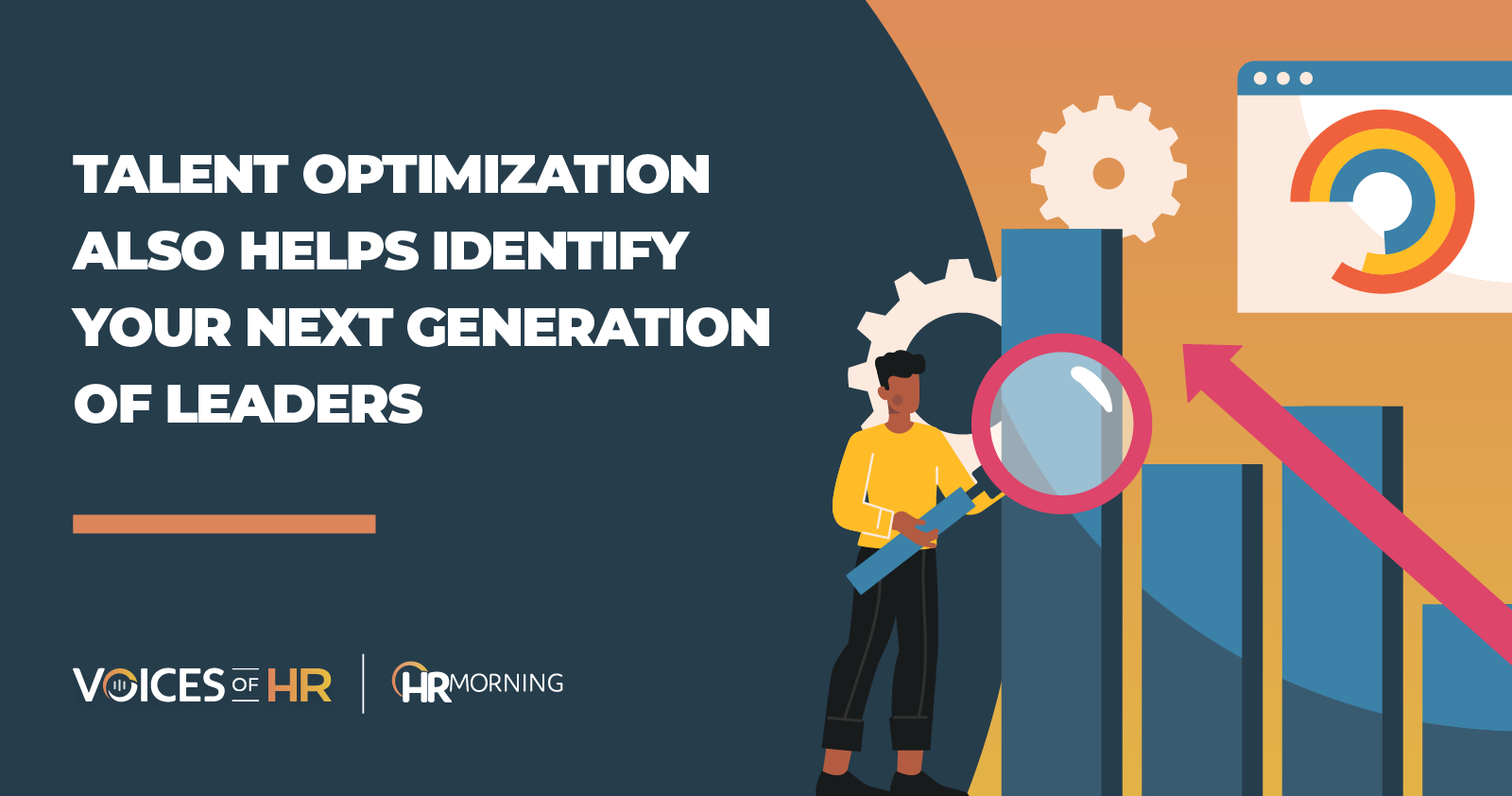HR is under constant pressure to find and retain the right people for the right roles. That’s where talent optimization – a strategic approach to managing people that can help organizations improve performance, drive engagement and reduce turnover – can help.
“This is the first discipline I’ve ever seen that really puts equal emphasis on the business part and the people part all at the same time,” said Dr. Matt Poepsel, the vice president of pre-employment testing company The Predictive Index.
“In terms of what is it we’re trying to optimize, it’s the performance and (employee experience) of every employee, every pair of employees, every team in the entire building … virtual or otherwise,” he said during an episode of the HRMorning podcast “Voices of HR.”
Talent optimization based on data
For Poepsel, talent optimization depends on tests, such as The Predictive Index’s behavioral assessment, to gather actionable data.
Assessments that ask the right questions about a worker’s performance and employee experience help organizations understand what motivates that person and how they prefer to work. This information can then be used to match employees to roles they can be enthusiastic about, create more effective teams, develop employees to their full potential and reduce expensive turnover.
“If you’re a manager, you can either take months and months, spending time with your people and trying to guess and figure it out, or you use an assessment like The Predictive Index and you can fast forward that process and understand specifically how you need to adapt your leadership style to match and meet their needs. And then everything flows in the business that much faster and that much more smoothly,” he said.
When it comes to talent optimization in a hybrid work environment, Poepsel had this to say: “You have to layer in what you know about (people’s personality and personal) issues … along with the work to be done. So I always ask (these) three questions: What’s the work to be done? Who’s doing the work? And who’s leading the charge?”
Looking ahead at talent optimization
Judging from the conversation in the podcast, it sounds like talent optimization will become even more significant as organizations face challenges like potential globalization of the business, adapting to tech advancements, a higher level of demand for innovation and creativity, and demographic shifts.
It’ll also be important for HR to translate to the C-suite the direct, bottom-line impact of talent optimization assessment metrics and the subsequent coaching, employee development and nurturing manager-employee relationships.
And speaking of demographics, Poepsel specifically referred to a newly emerging “Generation Alpha” – already-tech-savvy children now entering adolescence. “It’s going to be the most demanding generation ever to enter the workforce,” he predicted. “Why not develop resilience and flexibility into our workplaces so we can play the long game?”


